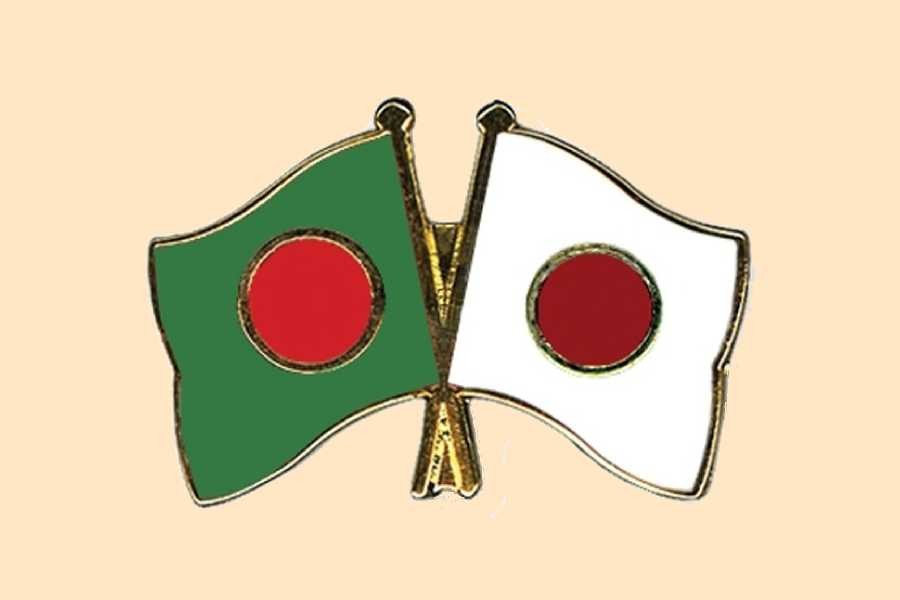
Published :
Updated :

Investment by Japanese companies in Bangladesh has been increasing steadily at a rate of 16-17 per cent for last few years with the majority of investors showing growing interest for expansion of business.
"The amount of investment continued to increase even after the incident of Holey Artisan attack," Japan-Bangladesh Chamber of Commerce and Industry (JBCCI) President Daisuke Arai said on Sunday.
He said they expect that the next government would focus on improving the business environment for Japanese investors to tap the potential.
Citing a survey conducted by Japan External Trade Organisation (JETRO) in 2017, the JBCCI president said 70 per cent of Japanese companies showed interest for expansion of business in next one year and around 60 per cent in next two to three years.
Mr Arai, also the country representative of JETRO, said these while sharing Japanese investment scenario in the country at "Meet the Press" at the JETRO office.
JBCCI honorary executive director Dr AKM Moazzem Hussain, vice president Shariful Alam, general secretary Tareq Rafi Bhuiyan (Jun), director Masud Karim and advisor Akhtaruzzaman were also present.
"About 270 Japanese companies are now in Bangladesh. The number of companies is increasing very steadily even though Holey Artisan incident in 2016," said the JBCCI president, adding that not a single company has withdrawn business due to terrorist attack.
Quoting the survey titled 'business conditions of Japanese companies in Asia and Oceania' he said investment risks in Bangladesh are still high comparing to other Asian countries.
Lack of infrastructure, weakness in governance and compliance, taxation system and lack of skilled workforce are among the risk factors the JETRO found as challenges for Japanese companies, he said.
He added: "There are scope of investment of Japanese companies in many labour and capital incentive industries as well as untouched service sectors like education, restaurant and beauty etc."
According to the survey, the number of Japanese companies was 183 in 2014 which increased to 223 in 2015, 245 in 2016, 260 in 2017 and 269 in 2018.
The JBCCI chief said 76 per cent of Japanese companies face difficulty in procurement of raw materials and parts, 72 per cent for inadequate logistics infrastructure, 69.1 per cent for quality of employees, 68 per cent each for quality control and power shortage or blackout.
Average arrival days of freight through both the sea and air routes are also higher than other Asian countries, Mr Arai said, adding that Bangladesh takes 20.4 days for arrival of sea freight while 8.7 days for airfreight.
"Even Dhaka airport freight time is much longer than the sea freight of Taiwan and Vietnam."
Mr Arai said Bangladesh remains as an attractive country in Asia as its wage and production costs are one of the lowest in Asia.
Half of the investment in the country is in textiles and garment sector. Some 10 companies are also working in the country to ensure quality control which is 10 times higher than the quality control of brands of other countries, he said.
Mr Arai said corruption, bribery, 'complicated and unclear' taxation system and lack of skilled workforce put the Japanese companies in challenges and hinder the process of speedy expansion of business.
"We don't discourage Japanese companies who knock the JETRO for investment in Bangladesh," he said, adding that problems being faced by Japanese companies increased in 2017 from the previous year.
He also said the JETRO Dhaka office keeps regular communication with the government for improving the business environment.
Dr Moazzem said tax related harassment discourages many Japanese companies as those take more than a year to settle cases. "As Japanese companies are hardly pay bribe, they go through the legal process and face the lengthy process of settlement of cases," he told the reporters.
According to JBCCI, Japanese investment in Bangladesh is around US$ 326 million till June 2018 which did not count the investment of Honda and Japan Tobacco.
The Japanese government's aid and grant also increased to $ 12 billion including $ 7.0 billion loan disbursement.
smunima@yahoo.com


 For all latest news, follow The Financial Express Google News channel.
For all latest news, follow The Financial Express Google News channel.